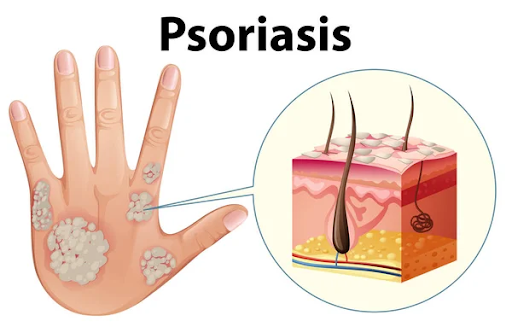Dealing with psoriasis can be frustrating, because it is more than a skin issue. The red, scaly patches that appear on skin aren’t the only symptoms. The itching, discomfort, and emotional toll can make everyday life harder.
The good news? There are plenty of treatments out there that can help calm flare-ups and clear psoriasis fast. A dermatologist can guide you toward the best psoriasis treatment options based on your unique needs.
If you’re looking for best psoriasis treatment options or psoriasis medication, the key is finding the right combination that works for your skin and lifestyle.
Let’s explore what’s out there and how you can start feeling better in your own skin.
1. Treatment Options Based on Psoriasis Type
If you want to know how to get rid of psoriasis, then first you need to find out which type you have. Psoriasis comes in different forms, and each type needs its own treatment approach.
Plaque psoriasis, the most common kind, is treated with creams, light therapy, or biologics. Scalp psoriasis responds well to medicated shampoos and topical foams. Nail psoriasis is tougher to treat, often needing steroid injections or biologics. Inverse psoriasis affects skin folds and does best with gentle creams. Guttate psoriasis can follow infections and usually improves with light therapy or topical meds. Pustular psoriasis is more serious and often needs stronger, systemic treatments.
Knowing your type helps you find the right relief. You can visit https://www.dasc.pk/treatments/psoriasis-treatment/ for more details on this skin condition.
2. Popular and Proven Psoriasis Therapies
Psoriasis meds come in a few forms. For mild psoriasis, creams are often the first step. These are applied directly to the skin and can help reduce redness, itching, and scaling. Creams like steroids and vitamin D are often effective.
If your psoriasis is more stubborn or widespread, pills may be prescribed to help control your immune system. Pills like methotrexate or newer ones like apremilast calm the immune system.
Biologics are advanced treatments that target specific parts of the immune system. They’re often used for moderate to severe psoriasis and can be very effective. Biologics, like Humira or Stelara, are injections that target the cause more directly.
Some treatments work fast, others take time to show results. Side effects vary, so regular check-ins with your doctor are key. You might need to try a few options before finding the right fit.
The goal is simple: fewer flare-ups and clearer, more comfortable skin.
3. Light Therapy (Phototherapy) for Psoriasis
Light therapy, or phototherapy, is a go-to option for treating psoriasis when creams just aren’t cutting it. It uses UV light to slow down skin cell growth and ease inflammation. The most common type is narrowband UVB, which you usually get a few times a week at a clinic. It’s pretty effective and can lead to longer periods without flare-ups. There’s also PUVA, which combines UVA light with a special medicine to make your skin more sensitive to the light. This works well for tougher cases.
If you’ve got just a few stubborn spots, excimer laser therapy can target those directly. It’s safe when done under a doctor’s care, but it can cause some redness or irritation, and long-term use needs to be watched closely. Overall, it’s a solid option if you’re looking for something beyond topical treatments.
4. Systemic Medications for Severe Psoriasis
For severe psoriasis, systemic meds are the big guns, they work throughout your body to calm the immune system. Systemic treatment for psoriasis includes biological and non-biological therapies.
Biologics like adalimumab or secukinumab are super targeted and usually given by injection. They’re effective but can raise your risk of infections.
Then there are older options like methotrexate and cyclosporine, which slow down skin cell growth but need regular checkups because of possible side effects. Oral retinoids help too, though they’re off-limits if you’re pregnant. A newer pill, apremilast (Otezla), reduces inflammation and is easier on the body, though it might cause nausea. Basically, these treatments are strong and need careful monitoring, but they can make a big difference.
5. Final Thought: Choosing the Right Treatment for You
Not every treatment works the same for everyone. Some people see fast results, while others need time and patience. Choosing the right treatment for psoriasis really comes down to your unique situation, how severe your symptoms are, your overall health, lifestyle, and even personal preferences. To know more about psoriasis treatment visit https://www.dasc.pk/treatments/.
What works wonders for one person might not be the best fit for another. It’s all about finding that balance between effectiveness and safety, with guidance from a healthcare provider who understands your needs. Whether it’s creams, light therapy, or systemic meds, the goal is the same: clearer skin, fewer flare-ups, and a better quality of life.










 /home/u448362301/domains/theexpotab.com/public_html/wp-content/themes/foxiz/templates/popup.php on line 167
/home/u448362301/domains/theexpotab.com/public_html/wp-content/themes/foxiz/templates/popup.php on line 167